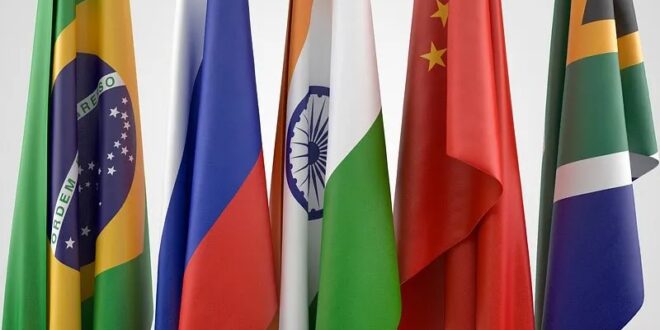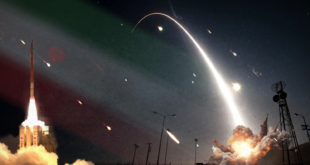Under the rotating chairmanship of China, BRICS—an informal intergovernmental union comprising Brazil, Russia, India, China and South Africa—has held a series of high-level virtual meetings on existing significant regional and international issues, one of which focuses on the organization’s expansion proposed by China.
BRICS is an organic association of countries that have many things in common: they have several shared interests and common approaches to addressing challenges that are relevant to all of humanity, including Russia. This is one of its key advantages, and today, many countries are showing an interest in the underlying principles and values of BRICS.
While Beijing did not indicate the criteria who precisely should become new members and steps toward official membership in the group, IDN has made a quick follow up, questioning experts specifically about BRICS expansion ahead of its summit in June.
Nearly all the discussions with experts indicated that BRICS members have little desire to expand the group at this time. In practical terms, China has been promoting the shaping of a club of BRICS friends for a while. Experts suggested the issue of enlargement would definitely need additional thorough discussions and final consideration, and should be approached with caution. It is important for BRICS to promote specific solutions, attain specific results and this is more important than blindly expanding.
Leaders of BRICS have expressed full-fledged satisfaction with the group’s performance. Its current format has proven effective and includes the Big Five, BRICS Plus and Outreach, and consequently have no plans to increase its numerical strength in the near future, experts emphasized in discussions.
Nandan Unnikrishnan, Research Fellow at the Observer Research Foundation, India, says: There is nothing wrong in trying to expand the BRICS if the new member countries meet the criteria of what BRICS represents, and their entry adds to the cohesion of the grouping.
However, it appears that at this stage of the evolution of BRICS the need of the hour is not expansion, but consolidation, given developments in the world as well as in each of the BRICS countries.
Secondly, BRICS is quite clear about Africa’s developmental needs. The question is how to mobilise the necessary resources to propel Africa’s development over and above their bilateral commitments to African countries.
All the BRICS countries are facing economic challenges that they need to address urgently. But in the long run, BRICS is keenly aware of the importance of contributing to Africa’s development agenda.
Charles Robertson, Chief Economist at Renaissance Capital, argues: The BRICS was just a concept from Goldman with little intellectual coherence beyond the fact that 1) all four of the original BRIC countries had a historically low GDP and were likely to rebound in size, 2) they were populous, 3) there were among them two commodity importers and two commodity exporters among them. South Africa was a late minor addition to the group, to add a “bridgehead to Africa”.
“So, it could expand because the BRICS are under-represented in the global financial architecture. Europe and the US dominate institutions like the IMF and the World Bank, and to some extent many others,” explained Robertson.
According to him, “Russia and others in the BRICS would like to see larger power centres emerge to offer an alternative to that Western dominated construct. That is reasonable enough—providing there are countries with the money to backstop the new institutions, such as China supporting the BRICS bank, and if the countries offer an alternative vision that provides benefits to new members.”
Robertson, however, questioned whether “a broader BRICS + body would offer tariff-free access to their markets as the EU and the US can? I doubt that. Can they offer financing via a BRICS bank? Perhaps!”
“Now is a very good time to show that BRICS members and relations between them are an alternative to the format existing in the West,” Executive Director at the Russian National Committee for BRICS Research, Professor Georgy Toloraya, told the Kommersant, a Russian daily business newspaper, adding that “BRICS favours order, compliance with agreements and development.”
Plans are in store to expand the group to include Argentina, Turkey, Indonesia and some other African countries.
According to Toloraya, India is currently opposed to expanding BRICS fearing that new members will support China. On the other hand, Moscow argues that “the entrance ticket” to the group is independence and sovereignty, and under no circumstances, potential candidates be called China’s satellites.
There are not so many countries like that—they would include Indonesia, Mexico, Turkey, Egypt and Iran. But then, there are certain political requirements for new members, including recognition of BRICS values and core foreign policy principles, he said.
Initially, the goals and tasks were very modest, primarily focusing on the economy and the coordination of efforts toward attaining more ambitious goals. As more members joined the group, it developed into a full-scale
“As a positive, inspiring and constructive force in the international community, the BRICS countries need to take real action to promote peace and development, uphold fairness and justice, and advocate democracy and freedom, so as to inject stability and positive energy into international relations in a period of turbulence and transformation,” Xi Jinping was quoted as saying by China’s Foreign Ministry.
Historically, the first meeting of the group began in St Petersburg in 2005. It was called RIC, which stood for Russia, India and China. Then, Brazil and subsequently South Africa joined later, which is why now it is referred to as BRICS.
The BRICS member countries (Brazil, Russia, India, China and South Africa) collectively represent about 26% of the world’s geographic area and are home to 2.88 billion people, about 42% of the world’s population.
 Eurasia Press & News
Eurasia Press & News




